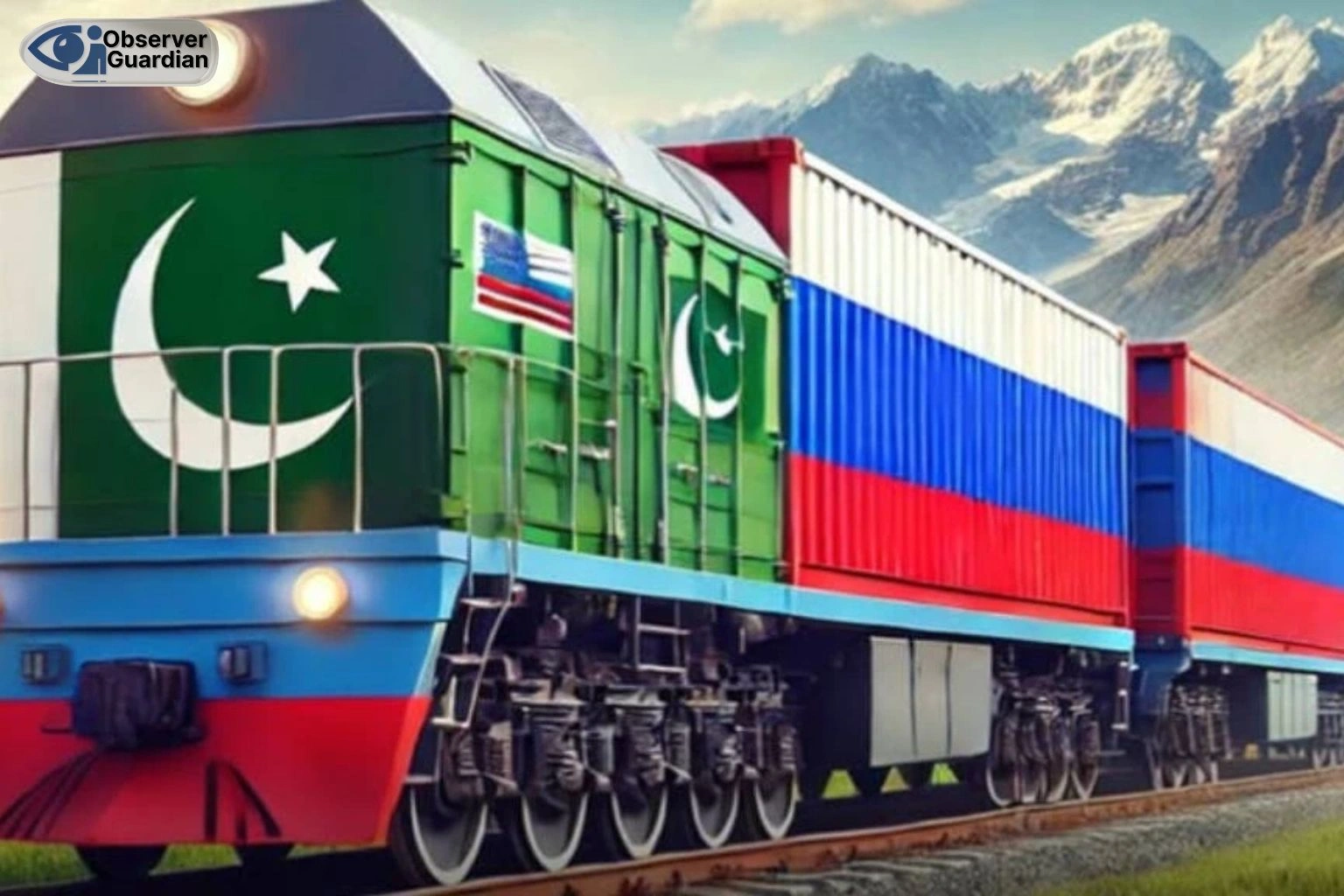Pakistan and Russia are currently in advanced negotiations to launch a pilot freight train service connecting Karachi with Moscow via Iran, Turkmenistan and Kazakhstan. The inaugural shipment is expected to carry 16 containers of rice, and the corridor is projected to span over 7,000 km. Proponents believe this rail route could reduce transit time from 35–45 days by sea to approximately 20–25 days by rail, while also lowering costs per container and opening new export markets for Pakistani goods in Russia and Central Asia.
This pilot project is being advanced under the framework of the 9th Pakistan-Russia Intergovernmental Commission, reflecting a deepening economic cooperation between the two countries. While a contract has already been signed between Pakistan Railways and Russian Railways earlier in 2025, the actual launch has faced delays due to regional and logistical challenges.
Background and Bilateral Framework
Since the establishment of the Pakistan-Russia Intergovernmental Commission (IGC) in 2008, the two nations have sought to expand cooperation across trade, technology, energy, and infrastructure. In recent years, Pakistan has made overtures to broaden ties with Russia beyond traditional diplomacy, focusing on connectivity projects, industrial collaboration, and alternate trade routes less dependent on maritime corridors. The pilot freight train is a tangible manifestation of this strategic shift.
Route, Logistics & Technical Aspects
The proposed rail route would begin at Karachi Port, traverse Iran, pass through Turkmenistan and Kazakhstan, and finally reach Moscow. The corridor length is estimated to be over 7,000 km, with projected transit times of 20–25 days for goods, significantly faster than typical sea routes. Containers for the first run have reportedly been prepared but departure has been delayed, partly due to regional security or diplomatic uncertainties.
Sadiq Khan hits back at Trump as feud renews
Economic and Trade Implications
If successful, the pilot train could reduce delivery time by almost half compared to sea transport, making Pakistani exports more competitive in Russia and the broader Eurasian markets. It offers a cost-effective alternative, improves supply chain resilience, and diversifies Pakistan’s export routes beyond maritime dependency. Furthermore, regularization of this route could integrate Pakistan more closely with trade networks in Central Asia and Russia.
Strategic and Geopolitical Significance
This rail corridor aligns with Pakistan’s broader vision of becoming a regional trade hub. It also gives Russia an overland link to South Asia, bypassing maritime chokepoints. The move may deepen strategic ties, increase leverage in regional connectivity dialogues, and counterbalance influence of other powers in the region.
Outlook and Next Steps
The two sides must finalize scheduling, border arrangements, insurance, customs protocols, and operational logistics. Setting a firm departure date for the pilot run is the immediate priority. If the pilot proves viable, Pakistan and Russia may scale up to regular freight services, potentially diversifying into other goods beyond agricultural products. Long term, such connectivity could feed into broader regional corridors involving Central Asia, China, and the Middle East.







